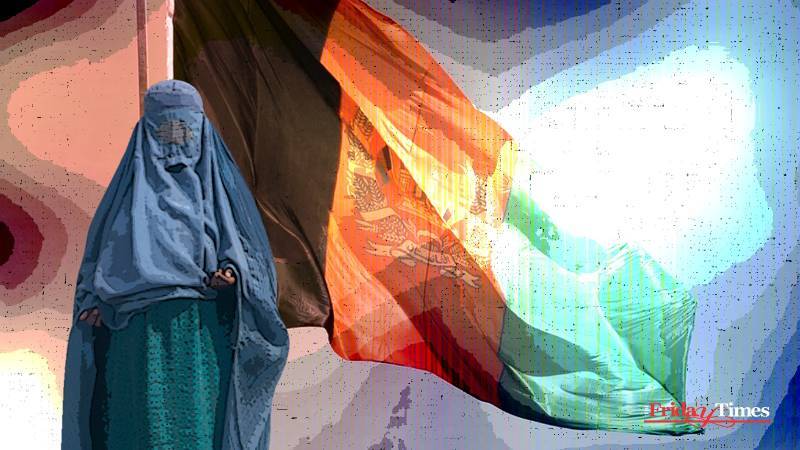
“Your worst sin is that you have destroyed and betrayed yourself for nothing”—Fyodor Dostoyevsky.
With respect to Afghanistan, an interesting news item appeared in December 2024 where the ruling elite passed an order that, “new residential buildings are to be constructed without windows looking onto ‘places usually used by women’ and said that existing windows with such views should be blocked to prevent ‘obscene acts’”. Of course, one understands that Afghanistan is a free country where the people are at liberty to choose to do whatever they like but one is compelled to marvel at their tremendous ‘insight’ into psychology and medical prowess. Even Sigmund Freud would have expressed surprise over their expertise in analysing situations where obscenity springs from.
In this age and times when the world has progressed to an unimaginable extent, where life spans have increased comparatively, where communication has reached incredible levels, and where every individual has access to information like never before, there is a nation that is bent upon annihilating itself on the ground of following a self-acclaimed ideology tooth and nail. Truly speaking, there is no need for anyone to take aggressive measures against a country that is digging trenches in and around itself.
For a moment, let us examine the various steps the Afghan government has taken concerning women in particular, after being liberated from foreign control in August 2021. The first ban towards the end of 2022 was meant to prevent women from pursuing university education and working for Non-governmental Organisations (NGOs). This is denying girls from becoming professionally trained and participate in building up their war-torn country. AID workers are forced to halt their work of providing necessary assistance to women confined within the four walls of their homes. This could also be in terms of medicines and staple food items that were supplied earlier.
Making matters worse, restrictions are being imposed on the public appearance of women as they are systematically denied the pleasure of nature walks in parks or enjoying a sport. This has been confirmed in a travelogue by a popular tourist who recently visited Afghanistan. Crackdowns on private employment have led to the closure of beauty salons rendering around 60,000 women jobless. Besides snatching their economic independence, women are also losing their ability to socialise with other women and share experiences to garner, if not anything else, some emotional support and give vent to their feelings.
Such Taliban officials who have reservations regarding the undue expulsion of women from the public arena are forced to remain silent before the authority of Mullah Hibatullah Akhundzadah, Taliban supreme leader based in Kandahar.
Any attempt by either men or women to protest against these edicts is met with formidable resistance with threats of detention, torture, and abusive conditions both during imprisonment and after release. Such Taliban officials who have reservations regarding the undue expulsion of women from the public arena are forced to remain silent before the authority of Mullah Hibatullah Akhundzadah, Taliban supreme leader based in Kandahar.
As Saudi Arabia and Iran are softening up their policies towards the fairer sex, although attainment of higher education and employment were never denied, Afghanistan is getting more and more aggressive in enforcing hijab detaining women for not properly observing it. The concept of veil extends even to voices meaning thereby that under the law, women are to abstain from talking, singing, or reciting poetry in public. Some local radio and television stations have also stopped broadcasting female voices.
According to the United Nations Human Rights Watch, these measures amount to Gender Apartheid. Already the country is ranked last on the Women, Peace and Security Index. With half the population without basic human rights, the Kabul administration is headed towards a suicidal path. Persistent deprivation can have serious psychological and physiological consequences. Putting oneself in the shoes of these women and imagining the trauma that they could be going through can be a most painful experience for the sensitive. A stifled and artificial life is as bad as being buried alive. To be in a position where one cannot have a standard amount of freedom is bound to have detrimental effects on a person’s mental and physical health.
With the increased number of diseases and a dearth of female doctors, how are 14.9 million Afghan women expected to seek treatment? If they are confined indoors and have limited exposure to the natural environment, will they not end up suffering from various deficiencies leading to poorer health? If they are forbidden from earning a livelihood, how will widows and orphans survive in the absence of males in the family? These questions are crucial to the well-being of an entire nation that is dependent upon women for the purpose of procreation, health, and longevity. If proper nutrition, essential services, and adequate financial support are not available for women, how can sustainability be ensured?
Another fiasco for women is that they have no one to turn to if they are subjected to abuse at home, which is not considered a cognisable offence. Under-aged girls are married off to relieve parents of their burden and in some cases, they become assets for sale for impoverished families. Non-availability of contraceptives means that there would be many unbearable pregnancies leading to high rates of infant and maternal mortality.
Banning women from interacting is definitely going to have long-term repercussions. If girls are deprived of education, then the chances of future generations with reference to knowledge would become bleak. Poor health of mothers will result in physically weak offspring and as the saying goes, “a healthy body houses a healthy mind” One can easily foresee how the children would turn out.
One can only pray that sanity prevails in this beautiful country and that those who are striving to liberate the once-liberated, succeed in their endeavours.

